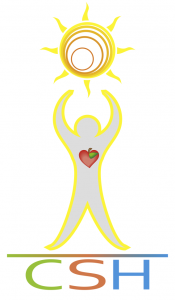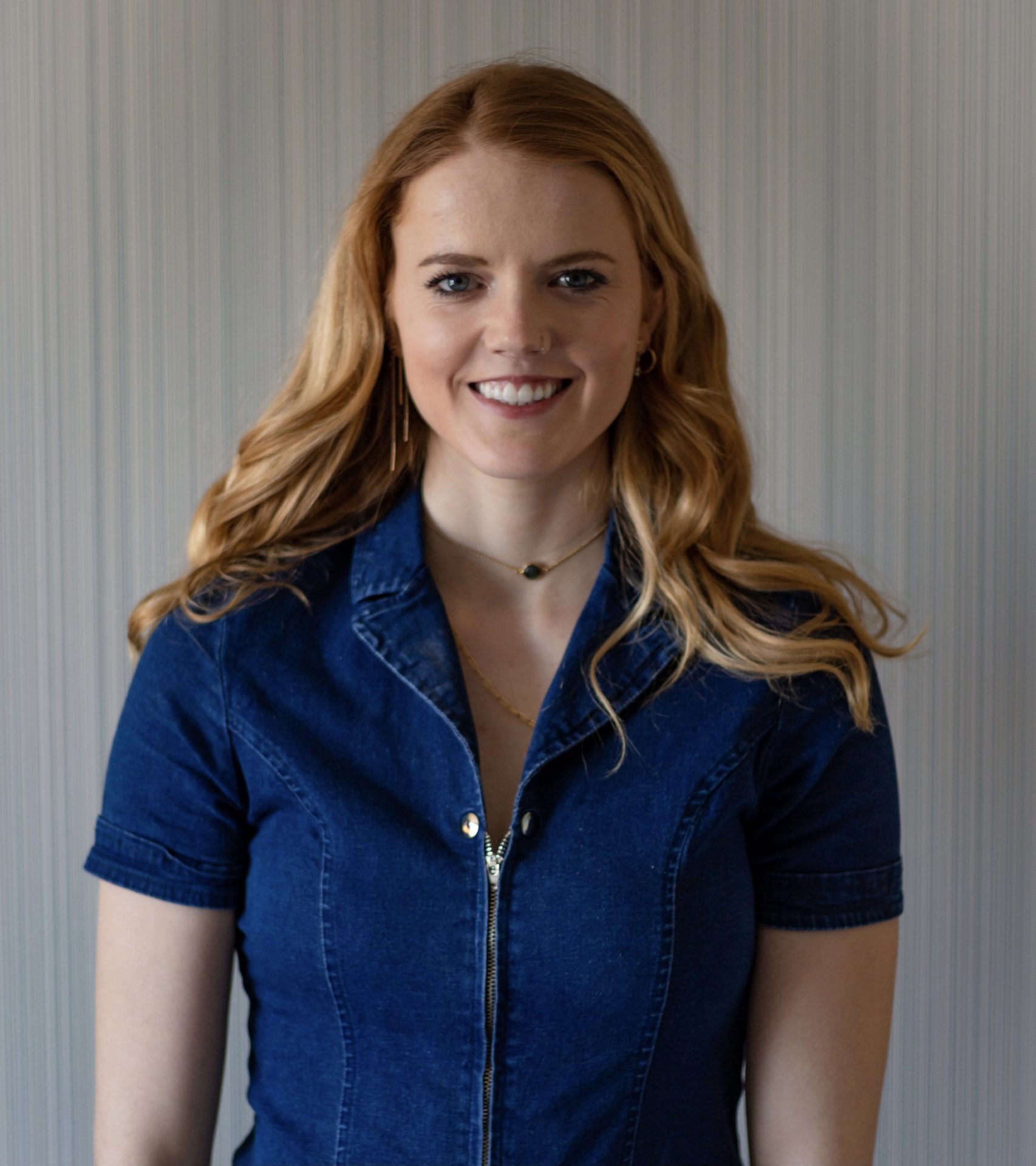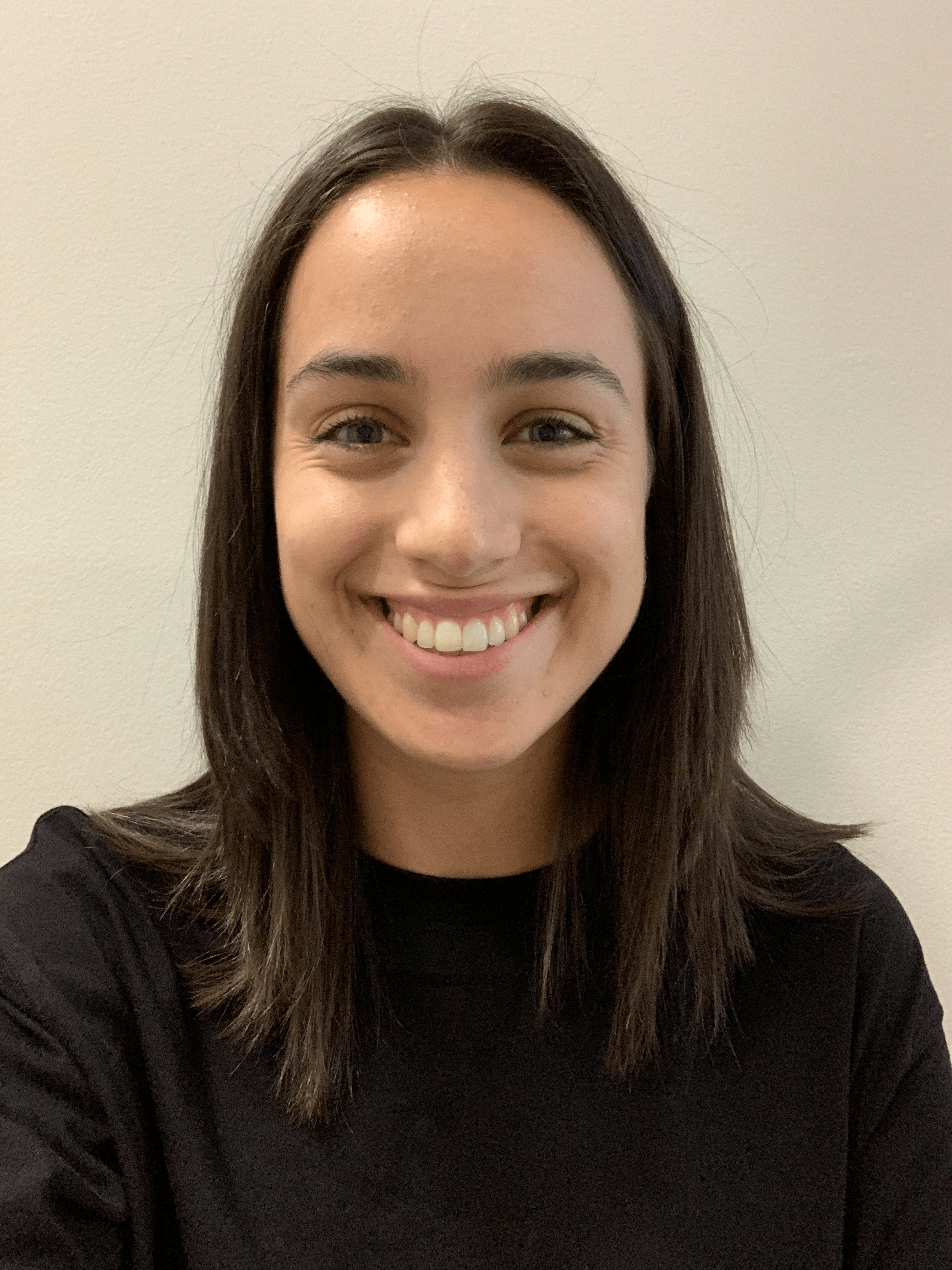My Teaching Journey
by Isabella Ferritto, 2nd year B.Ed Student
I have always been passionate about teaching. I remember as a young child lining up my toys and pretending to be a teacher and “teach” my toys. I used to pretend that my toys were deaf and hard of hearing and that I would teach them American Sign Language. I also had a passion when it came to people with special needs. I knew in my heart I needed to be in the teaching field. When I graduated high school, I enrolled in the Developmental Service Worker program at Algonquin College. I also enrolled in night classes and I completed five levels of American Sign Language while completing my degree at Algonquin. I graduated in June of 2000 and I then began my career as an Educational Assistant. I was lucky to have worked with a number of amazing students and families in my years as an educator. When I turned 30 years old, I decided to go back to school and receive my degree. I decided to go the route of online learning. I plugged away for ten years straight working on my undergrad degree while raising my children and working as an EA. I enrolled at Athabasca University in the Bachelors of Professional Arts program with a major in Human Services. I graduated in February 2019 and I received my letter of acceptance from U Ottawa on March 1st 2019 and just burst into tears with excitement. I finally realized that my hard work and dedication has finally paid off and I achieved that long-term goal of becoming a teacher.
When I accepted my offer at U Ottawa, I looked at the many different cohorts but the Comprehensive School Health cohort fit perfectly. I have anxieties and OCD and having worked with so many students over the years with different varying needs I knew that CSH cohort was the right fit for me. I am a firm believer of the importance of social and emotional learning and self-regulation, therefore, the CSH cohort was the perfect cohort for me. With this pandemic we have seen an increase in anxieties and difficulties amongst students and adults, therefore, the CSH cohort has been amazing. I have learned many important tools and techniques that I have been able to incorporate into my learning and teaching. These tools will be incorporated into my classroom daily, even long after this pandemic is under control. Mindfulness techniques and zones of regulation are important tools to implement into our daily learning. These tools are wonderful to implement into the classroom starting at a young age. When we teach our students methods to help with daily distractions and anxieties, we can give them the tools they need to carry them into their adulthood.
My time in the CSH cohort has been wonderful. I have made many amazing and long-lasting friendships and I have been lucky to have met some amazing professors that are knowledgeable and passionate about teaching. My two years have been incredible and I have learned so much and I have grown as a teacher. I am excited to bring forth what I have learned over my two years in the B Ed program and implement these into my classroom. I am excited for the new chapter in my teaching career and feel confident in my teaching abilities. If I can give advice to those who are beginning their B Ed degree, my advice would be make connections with your students and staff you work with during your practicum. Learn that you will make errors, and that is fine- we learn through our mistakes. It makes us human and only solidifies our teaching strategies. Empathy is important and just know that you have the power to change the life of your students. You can make a huge impact in their lives, please do so with kindness, love and embrace every student you have. Always see the good in every single student you teach. Be the teacher that these lovely students will remember long after you are done teaching them. Above all, have fun and know that for every bad day, there will be plenty of great ones ahead.
Lots of love and success,
Isabella M Ferritto A.K.A. Mrs. F
Q&A with Otusa Farahani, 2nd year B.Ed. Student
What led you to the B.Ed. program?
After completing my Honours degree, I knew I wanted to further my education and had the opportunity to embark on a Masters degree but I could not settle on something specific. Working as an Educational Assistant and finishing up an Independent Study in my Undergraduate degree around Autism and the Theory of the Mind, I always knew teaching was an option for me. Especially with the aspirations that I had, and I felt that the B.Ed program was the most logical step prior to gaining my MA and would provide the stepping stones to my end goal.
What prompted you to choose CSH? What aspects are particularly important to you?
The Comprehensive School of Health (CSH) had many facets which primarily roots itself in wellbeing and wellness. As an advocate for inclusive education, in wellbeing, in social emotional learning, I naturally gravitated towards CSH as its Mental Health focussed. I also specifically was looking for opportunities to branch into a Masters and found that Dr. Jessica Whitley aligned with the areas of studies I’ve been passionate about. Throughout my time in the CSH cohort, there has been such great emphasis and focus on authentic inclusivity, learners with exceptionalities, and trauma informed practices. This is particularly important to me as I have been immersed inside the world of Autism for quite some time, and as both a personal and professional passion of mine, it was a highlight to how we discuss our special needs population. Additionally, the connections between health living and healthy lifestyles, and how the cohort utilized exercise as a way of wellbeing and wellness was important as I run, spin cycle, yoga for my Mental Health.
Tell us about your UROP program. What is it about? Why did you choose those particular topics?
My UROP program is titled as: COVID-19 Implications for children with special education needs: A thematic analysis of positive benefits of school closures.
Throughout the pandemic, there was undoubtably an immense amount of negative things going on in the world. I had the opportunity to read a sample of the data Dr. Whitley provided with her COVID-19 research and initially, my idea was to do a more critical analysis on the downfalls of school closures, but it was one day where I was exercising and felt really lucky that in the midst of all the uncertainty, I was able to move. This sentiment got me through my fitness studios closing, loosing my jobs, gaining my jobs back, not seeing my friends, isolation. When I began to develop concrete ideas, this mantra I was using peaked through and I decided that, although so many families found so much difficulty, there were some great positives that came out of a really challenging time. Either it be spending more quality time as siblings to, gaining independence in the kitchen. So, I decided to break it down and see what positives I could find.
Can you share some of your highlights from your B.Ed in the CSH cohort?
My first answer to this would be the friendships I’ve made inside my cohort. There were a handful of classmates who have worked side by side one another, supporting each other throughout a very different school year. Additionally, in the fist year of the program, we did a Candy of Cause event for Crossroads which was successful. We wanted to specifically give back to an organization that was linked to our CSH philosophies and we all had a lot of fun running it. In the same breath, there were a lot of discussions and information provided about Trauma Informed teaching/practices which I’m deeply passionate. In particular, there was a professional learning development day where I did a workshop on Homelessness, which is a cause close to my heart. As for this year, it has to be the opportunity of working as a Research Assistant with Dr. Jessica Whitley. It exercised a completely different muscle for me and I felt that the transcripts we worked with, and the details outlined, have influenced the way I’ll approach families and students with learning needs inside my class one day.
Check out Otusa’s UROP program poster here!
Q&A with Julia Toscano, 2nd year B.Ed. Student
What led you to the B.Ed. program?
Ever since a young age, I knew my calling was to work with children and supporting their well-being. My practice as an Early Childhood Educator solidified that I wanted to be in a classroom setting, working as a teacher. This part of my career allowed me to gain hands on experience working with children across various developmental stages. After doing my undergraduate degree in Child Studies, I decided to pursuit my B.Ed to fulfill my dream of becoming a teacher. I was intrigued specifically by the concept of practicum and Community Service Learning (CSL), where you gain tangible experience in a classroom setting with an OCT-Certified Teacher.
What prompted you to choose CSH? What aspects are particularly important to you?
Tell us about your UROP program. What is it about? Why did you choose those particular topics?
Can you share some of your highlights from your B.Ed in the CSH cohort?
Check out Julia’s UROP program poster here!
Q&A with Tegan Duncan, 1st year B.Ed. Student
What led you to the B.Ed. program?
What prompted you to choose CSH? What aspects are particularly important to you?
Tell us about your documentary. What is it about? Why did you choose this particular topic? Why did you decide to create it?
What are you most looking forward to in your 2nd year of your B.Ed program?
You can watch Tegan’s documentary by visiting the link here. You can also read an article on Global News that featured Tegan’s documentary here.
Q&A with Hannah Flaherty, 1st year B.Ed. Student
What led you to the B.Ed. program?
After completing my undergraduate degree in Health Promotion at Dalhousie University on the East Coast I decided to apply to an Ontario B.Ed. program. I am originally from Toronto, ON and wanted to be closer to my family. I applied and was admitted to the University of Ottawa. As well as being closer to my family, the knowledge I had from my undergraduate degree in Health Promotion led me to see the importance and impact that education can have on an individual’s overall health and well being. This understanding and the passion I have for teaching and working with children I knew that completing a B.Ed. program was the next step in my academic career. My aim is to gain meaningful classroom teaching experience and then take that experience to inform education policy and assist in developing curriculum.
What prompted you to choose CSH? What aspects are particularly important to you?
I chose the CSH cohort because of its’ holistic approach to education. Being aware of the connections that exist between health and education is key to helping all students be successful. The use of the Joint Consortium for School Health model was another part of the CSH cohort that resonated with me. As part of my Health Promotion degree requirements, I completed an internship with a School-Community-University partnership, called UpLift, that brings together multiple partners, who collectively work to support the health and learning of children and youth throughout Nova Scotia. While completing my internship with UpLift, I continued to enhance my understanding of the connections that exist between health and education; therefore, making the CSH cohort the best fit for me.
Tell us about your UROP program. What is it about? Why did you choose those particular topics?
My Undergraduate Research Opportunity Program (UROP) project was conceptually linking the InterActive for Life (IA4L) Project to the tenets of the Comprehensive School Health framework. I experienced mentorship and Zoom sessions geared towards experiential sampling, promotion and teaching of various inter-activities from the IA4L resource. I was then able to reflect on the connections experienced between the IA4L interactivity and the five interconnected CSH tenets. I documented these reflections and generated a list of recommendations that would help the interactivities I experienced better connect to the five CSH tenets. I chose these topics because as a student currently in the CSH cohort, I was interested in how I could bring together the relational connections of the IA4L project and the tenets of CSH from my teaching practice to create a practical pathway between these two frameworks.
What are you most looking forward to in your 2nd year of your B.Ed program?
I am looking forward to my year 2 practicum because I have really enjoyed the opportunity to put my learning as a first-year teacher candidate into practice. I am currently completing my practicum online and am looking forward to an in-person practicum next year (fingers crossed!). For my year 2 courses, I am looking forward to taking Part 2 of the Curriculum Planning, Implementation, and Assessment and Part 2 of Learning Theories and Practices in Inclusive Classrooms.
Check out Hannah’s UROP program poster here!
MAY 2020
Living My Passion
by Pearline Barrett-Fraser, CSH cohort alumna
Teachers in today’s classrooms often struggle with integrating movement into their lessons in emergent, inclusive, and culturally-relevant ways. As a dance educator, I take pride in differentiating my lessons to ensure that my students experience success in an equitable learning space. My name is Pearline Barrett-Fraser and I am a recent graduate from the Teacher Education program from the Comprehensive School Health (CSH) Cohort (uOttawa-comprehensive-school-health.ca). For the past 6 years, I have taught dance workshops to children of all ages, from junior kindergarten to grade 12, each coming from different levels of education and ethnic backgrounds through Luv2Groove, an organization that aligns dance workshops with the “Arts” and “Health and Physical Education” curricula.
Luv2Groove’s mission is to “foster the growth and development of dance education through a blending of our passions in dance, health, and education. Our goal is to enhance the arts curriculum in schools by encouraging students to move, groove and to have fun”(Luv2Groove, 2018). Julia Gutsik, CEO & Creative Director for Luv2Groove and graduate from uOttawa’s M.Ed. program, encourages students to “develop their own movement vocabulary” (Gutsik, 2019) as they learn about relationships, active play, improvisation and tempo while practicing locomotor and non-locomotor movement.
As I powered through my journey of embedding an active and positive lifestyle, I discovered a strength within myself that I did not know was present. The importance of being interactive is key when it comes to my workshops and the Luv2Groove formula. Students are always engaged, and there is no time to lose focus. From mini-movement challenges, exploration activities, and syncing steps, I build rapport quickly with the students while adding in my own flavour and personality. I take each workshop as an opportunity to promote and encourage active and healthy living. We are not focused on getting the moves perfect, but just encouraging the students to keep moving. As a result, improving confidence and fostering creativity in every student. Working with Luv2Groove Dance Education, has amplified my feelings towards physical activity and movement within the classroom due to their effective teaching methodology.
In addition, physical Literacy is essential in today’s technological advancements and ever-evolving society. Students have a constant struggle to move and explore on a daily basis. Students are not only exploring but also learning through these devices and as educators, we must be active participants and role models in teaching through interaction. Using outlets like GoNoddle or Just Dance videos from Youtube are recently observed options to integrate movement into the classroom. However, I believe we must embody our teachings. We must move and groove with our students! Find different ways of exploring through space, expressing your thoughts and moving to the beat!
Luv2Groove is my platform to share myself with others and to show students a new way to be active, strong and confident. Each workshop we focus on elements of dance including, body, space, time, energy and relationship. Building a positive relationship amongst students is key to creating a playful culture in every educational environment. Through our movement activities, and follow-along dances we create a space that establishes unity and eliminates barriers and building physical, social and character skills.
Let’s become active participants in our students’ learning. Let’s change lives through movement, music and transformative practices. It’s simple. Just turn on some music and get moving!
If you would like Luv2Groove to visit your school please check out our website below!
Follow us on Twitter!
@Luv2Groove
@MsPearlOCDSB






